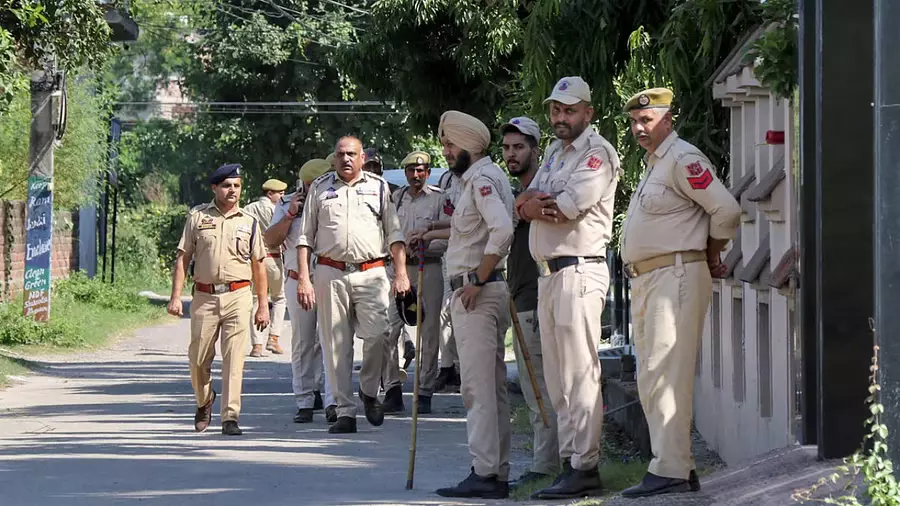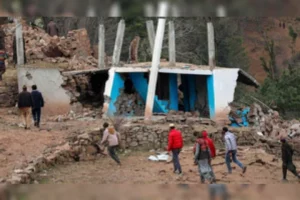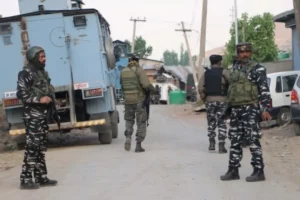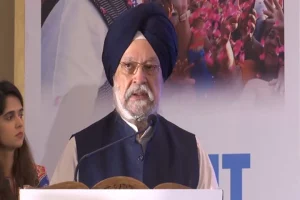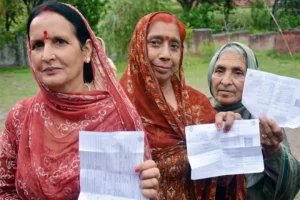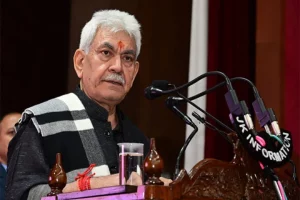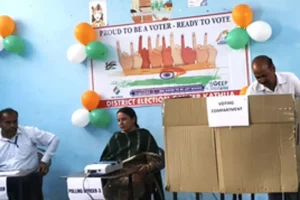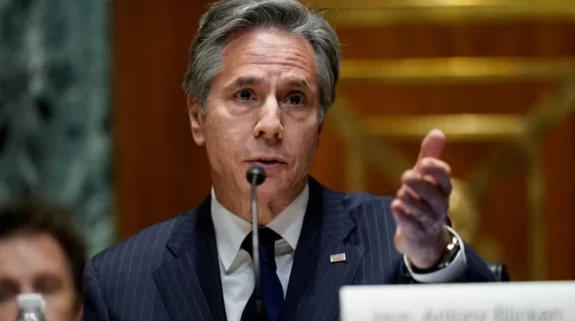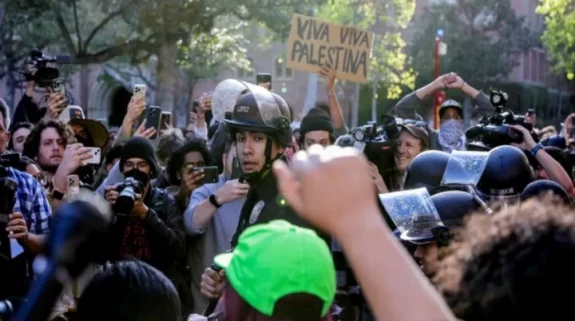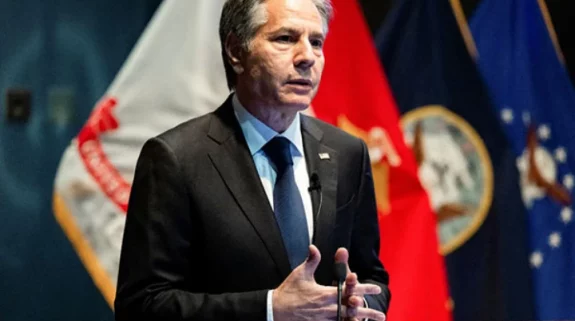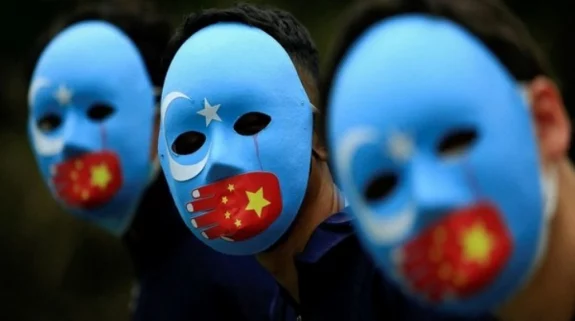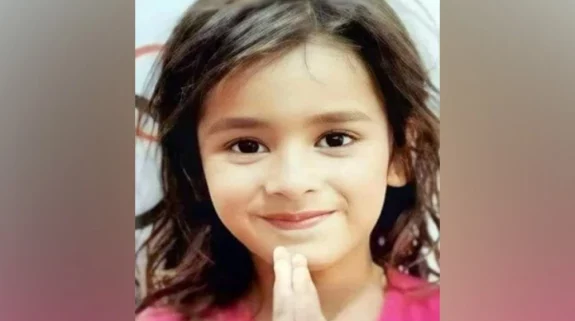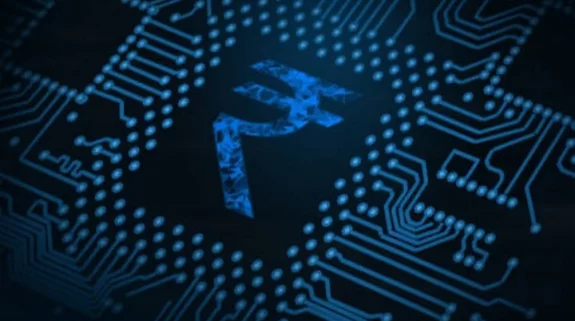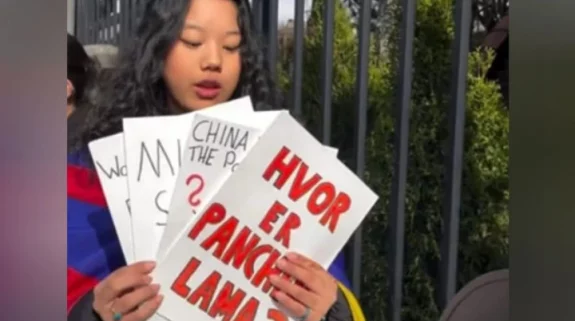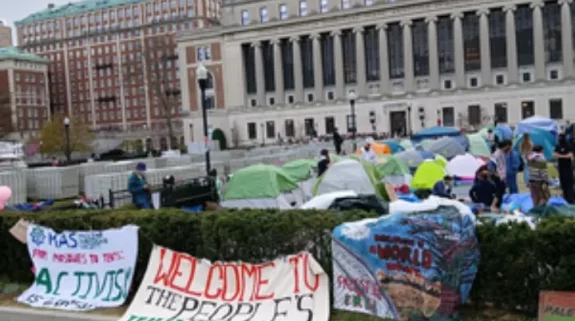Srinagar: Over 30 years after the first spell of terrorist bloodshed in Kashmir, the Jammu and Kashmir Police have decided to reopen investigations into at least 9 high- profile assassinations committed during 1989-1994 and is seeking cooperation from people, including eyewitnesses whose identity would remain confidential.
Mainly because of the fear of the gun and reprisals from terrorist outfits, most of the witnesses of these assassinations either refused to depose in trial courts or turned hostile. This led to the prosecution failing to establish charges levelled against the accused. Many of the accused, detained by the police, were released on court orders due to this breakdown of the administration of justice.
To begin with, the State Investigation Agency (SIA) of the J&K Police has on Monday issued an appeal to the common people to help in the investigation of the murder of retired District & Sessions Judge Neelkanth Ganjoo.
#WATCH | After the State Investigation Agency (SIA) in Jammu and Kashmir sought a fresh probe into the 1989 murder of retired judge Neelkanth Ganjoo, former J&K deputy CM Kavinder Gupta says, “It is good that he (Neelkanth Ganjoo) will get justice…The BJP govt had already said… pic.twitter.com/vpH89ovNf8
— ANI (@ANI) August 8, 2023
Authoritative sources revealed to India Narrative that soon after Ganjoo’s case, the J&K Police would seek help from the public in the high-profile assassinations of BJP leader Tika Lal Taploo, prominent Kashmiri Muslim clerics Mirwaiz Maulvi Farooq and Mirwaiz Qazi Nisar, journalist Mohammad Shaban Vakil and prominent Pahari-Gujjar leader Maulana Mohammad Sayeed Masoodi.
Ganjoo, who had announced a death sentence for JKLF founder Maqbool Bhat in a murder case, was gunned down by three unidentified terrorists at the crowded Hari Singh High Street when he was walking out of the Jammu and Kashmir High Court on 4 November 1989. After his retirement from judicial service, he had started practicing law at the High Court.
Through a notice, SIA has appealed to all persons familiar with facts or circumstances of the Neelkanth Ganjoo murder case to come forward and share any account of events which has direct or indirect bearing on the investigation of the instant case. It assured that the identity of all such persons would be kept completely confidential and anybody whose information could prove helpful in investigation of the case would be suitably rewarded. The SIA has shared its contact number and email ID with the public.
In the late 1960s, Ganjoo had presided over the trial of the JKLF founder Maqbool Bhat. Bhat had been arrested in Handwara and subjected to trial in the kidnapping and murder of Assistant Sub Inspector of the CID wing of the J&K Police Amar Chand in Srinagar. One member of Bhat’s guerrilla gang, Kala Khan, a retired Subedar, was killed in the encounter when Bhat and his associate Mir Ahmad were arrested.
Ganjoo declared Bhat as a convict and sentenced him to hanging by execution in September 1968. The sentence was subsequently upheld by the Supreme Court of India in 1982.
In December 1968, Maqbool Bhat and Mir Ahmad managed to escape through a secret tunnel from Srinagar Central Jail. In 1969, they returned to Pakistan-occupied Kashmir. In May 1976, Maqbool Bhat once again infiltrated into Kashmir. While looting the Langate (Handwara) branch of the Jammu and Kashmir Bank, Bhat shot dead the branch manager, a Kashmiri Muslim and resident of Srinagar’s Rawalpora area. He was, however, captured and handed over to the police who launched prosecution against him for the bank manager’s murder.
In February 1984, JKLF’s guerrilla affiliate National Liberation Army (NLA) kidnapped an Indian diplomat, Ravinder Mhatre, in the United Kingdom. NLA demanded Maqbool Bhat’s release and ransom money from the Indian government. As New Delhi refused to concede these demands, the NLA shot Mhatre dead in Birmingham.
On orders of the then Prime Minister Indira Gandhi, the Tihar Jail authorities fulfilled the legal formalities in quick succession and Maqbool Bhat was hanged to death at Delhi’s Tihar Jail on 11 February 1984. Within six years of the execution, the JKLF terrorists assassinated Ganjoo in broad daylight in Srinagar.
Before Ganjoo’s murder in November 1989, the JKLF terrorists had gunned down the National Conference activist Mohammad Yousuf Halwai in August and the prominent BJP leader Tika Lal Taploo in September 1989.
Tika Lal Taploo, a former Jana Sangh leader, was assassinated near his home at Habbakadal in Srinagar on 14 September 1989. Senior BJP leaders including LK Advani and Kidar Nath Sahani participated in his funeral when an armed insurgency was erupting in the valley.
Lassa Kaul, then Director of Dooradrshan Kendra Srinagar, was gunned down allegedly by JKLF terrorists at his residence in Bemina, Srinagar on 13 February 1990.
Mirwaiz Farooq, who was part of the National Conference-Congress coalition in 1987-1990, was shot dead allegedly by the Hizbul Mujahideen terrorists at his residence in Nageen, Hazratbal, on 21 May 1990. Later that day, over 50 civilians died when CRPF opened fire on Mirwaiz Farooq’s funeral procession near Islamia College, Hawal. It led to Governor Jagmohan’s replacement by the former RAW chief Girish Chander Saxena.
Influential Pahari-Gujjar leader Maulana Masoodi was shot dead allegedly by the terrorists of Hizbullah at his residence in Ganderbal on 13 December 1990. He was a member and the first temporary Chairman of the Jammu and Kashmir Constituent Assembly when it was constituted in October 1951. Later, he was a prominent leader in Sheikh Mohammad Abdullah’s Mahaz-e-Raishumari. In 1977, Masoodi joined a political alliance and campaigned for Prime Minister Morarji Desai’s Janata Party against Sheikh’s National Conference in the Assembly elections.
Years before his assassination, Masoodi had quit politics.
Founder-editor of the Urdu daily Alsafa News, Mohammad Shaban Vakil was shot dead allegedly by JKLF terrorists at his office at Saraibala in Srinagar on 23 April 1991.
Mirwaiz of South Kashmir and founder of Ummat-e-Islami, Qazi Nisar Ahmad, who played a key role in establishment of the Muslim United Front (MUF) in 1986, was kidnapped and shot dead allegedly by Hizbul Mujahideen terrorists at his hometown of Anantnag on 19 June, 1994.
Sources said that the authorities were also considering reopening and seeking peoples’ help in the investigation of two more high profile assassinations of 1990. The then Vice Chancellor of the University of Kashmir and a prominent Islamic scholar, Professor Mushirul Haq, and his personal secretary Abdul Gani Zargar were kidnapped by the Jammu and Kashmir Students Liberation Front (later named as Ikhwanul Muslimeen) from the University campus on 6 April 1990. Both were found dead on 10 April 1990.
Then General Manager of Hindustan Machine Tools, HL Khera, was kidnapped by JKSLF terrorists at Qamarwari Srinagar on 6 April 1990 and later shot dead. Accused Mohammad Saleem Zargar and Tahir Ahmad Mir were released and acquitted by TADA Court due to absence of corroboration and failure of the prosecution. The judge observed that conviction could not be granted simply on confession of the accused.
Also read: What changed in Kashmir: 4 years before & after abrogation of Article 370






